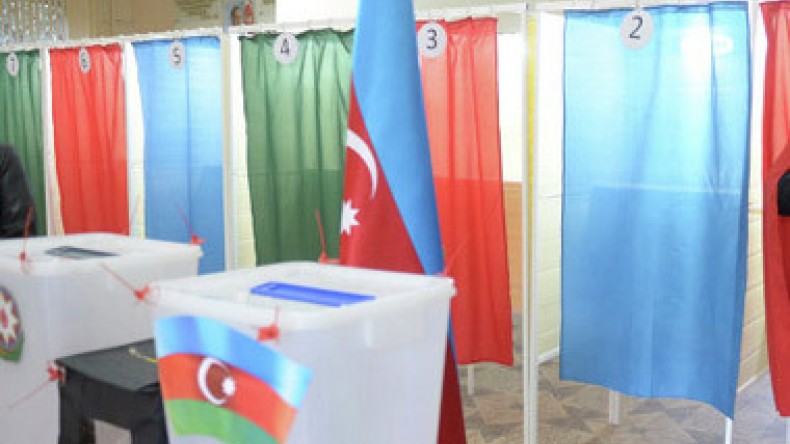
Washington Post: In Azerbaijan elections serve function of spectacles
Azerbaijan is an electoral autocracy — the type of regime in which “regular elections are held for national legislatures and chief executives, yet they fail to live up to democratic standards of freedom and fairness,” the Washington Post reports.
According to the article specifically addressing the informational signaling function, the large margin by which Aliyev won sends a message to both elites and the masses that he is firmly in control. The author thinks that elite management is more important for Aliyev, as the biggest threat to his rule comes from coordinated action from within the elite. Aliyev has firmly told the elite that he has “unconditional support of the population,” as one official commented on the president’s reelection.
“There is a great deal of evidence that the use of administrative resources and manipulation did take place in this week’s election in Azerbaijan. Media reports and especially social media reports from observers were readily spread via social networks. the report by the Organization for Security and Cooperation in Europe’s Office for Democratic Institutions and Human Rights claimed manipulations such as merry-go-round voting and ballot-box stuffing took place, which is consistent with past elections in Azerbaijan. Moreover, it is alleged that a mobile phone app introduced by the Central Election Commission (CEC) to allow users to follow vote counting on Election Day “leaked” the final election results a day before the voting started. The U.S.
government, UK government, and the European Union all made critical statements about the conduct during the election. It’s notable, that the Council of Europe’s Parliamentary Assembly did not find any manipulations,” the author of the article Katy Pearce writes.
According to the article some Azerbaijani experts suggest that electoral fraud was unprecedentedly high.
According to the author of the article interesting development this year was the unification of opposition parties into a pre-election coalition that perhaps helped run a relatively more active campaign but did not yield the expected success in terms of more effectively challenging the regime. The electoral field is too tightly controlled by the regime with too many obstacles for oppositionists to compete for offices. Another important factor according to her is the weakness of political parties constituting the coalition. Finally, the article says, there is not sufficient use of innovations in forming strategies to confront the regime.
“The role of social media in this election, as we noted in our pre-election reports, was mostly for keeping eyes on the ground and reporting,” Pearce noted.
The author sums up saying that the potential for opposition contest during election cycles depends on the economic situation and the incumbent’s control of state resources and the expectation of a power transfer. According to her in the specific case of Azerbaijan, the structural economic factors are at present not favorable for elections to have a real pro-democratic effect. But this may be changing. “The regime’s strongest vulnerability is poor economic performance, which to a large extent depends on the dynamics of oil production and swings in the international oil prices,” the writes. According to her, however, with declining oil revenue and the poor development of alternative non-oil sectors, Aliyev, if he intends to stay in power, is going to need to make hard choices about what to do next.
Azerbaijan held presidential elections on October 9, where Ilham ALiyev took a victory with 84,58% votes. According to the preliminary data, Jamil Hasanli a single candidate from the oppositionist National Council of Democratic Forces is on the second place. He scored 5,54% of votes. The leaders of the "Musavat" party Isa Gambar, the head of the Popular Front Party Ali Kerimli, the Democratic Party of Azerbaijan Sardar Jalaloglu and leader of the movement “EL” Eldar Namazov have declared about "total violations" and frauds during the presidential elections. The candidate of the National Council Jamil Hasanli has also noted the mass election frauds and announced incumbent President Ilham Aliyev responsible that. Jamil Hasanli’s headquarter has regularly issued releases describing election violations in details - ballot stuffing, "carousels", pressure on observes, etc.
Newsfeed
Videos






























